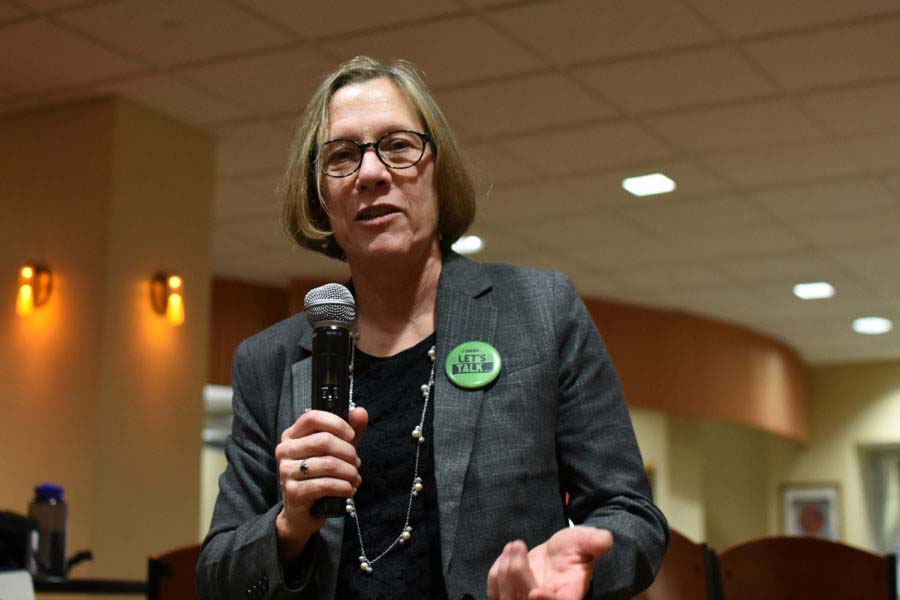Provost’s office accepting OER grant applications
Knox Coulter | Assistant Visual Editor for Multimedia
The University is accepting proposals from faculty until Feb. 19 for projects to adapt, adopt or create open education resources for current course offerings as a part of a series of initiatives run by Provost Ann Cudd’s office to encourage the use of OERs.
January 16, 2020
The University is accepting proposals from faculty until Feb. 19 for projects to adapt, adopt or create open education resources for current course offerings.
The third iteration of the funding program is part of a series of initiatives run by Provost Ann Cudd’s office to encourage the use of OERs. OERs are course materials like textbooks, lab notebooks and videos that are free for Pitt students and allow for legal adaptation and open use with attribution to the original author. They are typically free or less expensive than traditional textbooks.
Faculty can apply for smaller grants, ranging from $500 to $2,000, to adopt or adapt an open textbook or OER course component such as online homework, lab manuals or support materials. Larger grants, between $2,000 and $5,000, are available to support individual or team-based development of open textbooks, or combining an open textbook with course-specific development.
Lynn Dang, a Student Government Board member and OER advocate, said faculty have adopted open resources for a variety of reasons such as existing textbooks not fitting current needs or a desire for customizability, but supporters have a way to go still for wider usage.
“We have had discussions ranging from marketing tactics to spread awareness to faculty to considerations on what the word ‘open’ even means,” Dang, a sophomore business major, said.
Student Government Board passed a resolution in January 2018 supporting broadened use of OERs as a way to control the cost of education on individual students. Then-Provost Patricia Beeson later established a standing committee to explore opportunities to use OERs in the classroom in response to SGB’s resolution.
Based on the recommendations of the standing committee, Beeson said in July 2018 several initiatives promoting OERs would be created. In addition to the grants program, Beeson asked that the creation of OER materials be added to annual reports and tenure processes, asked the Center for Teaching and Learning to develop assessments to measure student success in classes using OERs, asked that a system be created for students to identify OER course materials in course catalogs and created an OER standing committee to maintain an OER awareness program.
Eleven projects were funded in fall 2018 as part of the initial OER funding round to support the development of OERs that enhance the educational experiences of Pitt students and provide greater flexibilities to faculty developing their curricula. Nineteen projects were similarly funded in spring 2019.



